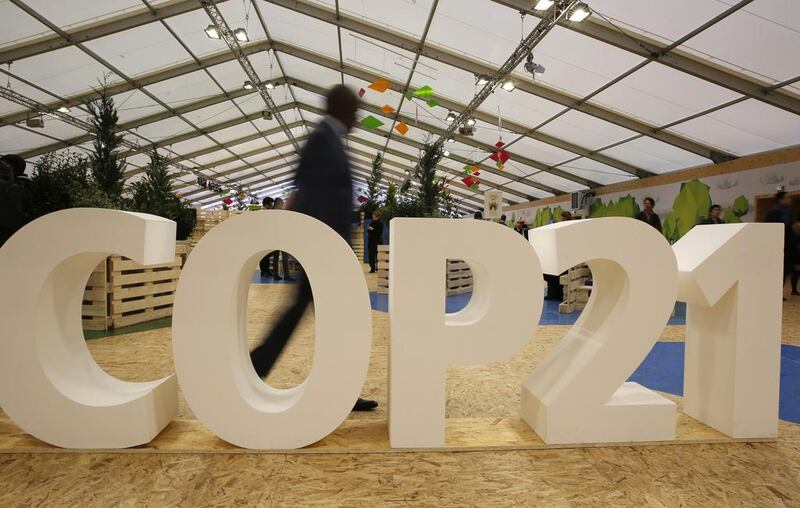Financial commitments towards clean energy from governments are welcome, but financial institutions will also need to step up to the plate to meet long-term climate change goals, experts say.
Discussions at the 21st edition of the Conference of Parties (COP21) on climate change, being held in Paris, have led to governments pledging billions of dollars to support a greener economy, with forecasts of global energy demand rising by 37 per cent between last year and 2040, according to the International Energy Agency (IEA).
And while the climate talks have created a new wave of clean energy commitments, making the money accessible would be key to achieving targets.
The main catalyst will be financial solutions to allow consumers to generate and consume their own electricity, said Omer Ghani, chief executive of the Dubai-based energy solutions provider Qmega.
He said that there was a strong will now, thanks to the talks in Paris, but this would need to be backed by adequate financial resources. “This is the future that our global leaders must pursue and ensure that it receives its fair share of financial resources,” he said, adding that governments needed to overcome their hesitation to finance solutions.
“Equality of economic opportunity is the right of everyone, and this equality can only be achieved if financial decision makers do not marginalise consumers of electricity who they, incorrectly, consider a ‘repayment risk’,” Mr Ghani said.
Five years ago at COP16 in Cancun, the Green Climate Fund was established to support projects, programmes and policies in developing countries to help curb carbon emissions. To date, none of the fund’s more than US$10.2 billion has been disbursed.
The answer many not lie with a global accord signed by heads of states but rather with local financiers.
National Bank of Abu Dhabi expects more regional banks to support the delivery of renew- ables. Mark Yassin, co-head of wholesale banking and head of global banking at NBAD, said that for the past five years, more than half of all investment in new electricity generation worldwide has come from renewables.
According to the United Nations Environment Programme (Unep), global investments in renewable energy increased by 17 per cent to $270bn last year, after declines in the previous two years. Despite the lull in oil prices that has lasted more than a year, renewables continues to be a hot topic.
Last month, HSBC, for example, pledged to commit $1bn to a green bond portfolio that would fund projects in renewable energy, energy efficiency, clean transportation and climate change adaptation.
Regionally, NBAD expects this trend to continue with energy demand in the Gulf countries likely to triple in the next two decades, according to its March report, Financing the Future of Energy.
More will be needed from financiers to reach future targets set by governments. Mr Yassin said that to reach longer-term objectives, additional pools of liquidity would need to be found, such as funding from the debt and equity capital markets.
“Renewables will play a key role in meeting this energy demand and mobilising funding from banks and other sources will be an important driver,” said the Nathan Weatherstone, head of renewable energy at NBAD.
Last month, Sheikh Mohammed bin Rashid, Vice President of the UAE and Ruler of Dubai, launched the Dubai Clean Energy Strategy 2050, which includes establishing a Dh100bn Dubai Green Fund and meeting a target of producing 25 per cent of the emirate’s energy from clean sources by 2030.
Sheikh Mohammed said that strategy would help Dubai “establish a sustainable model in energy conservation which can be exported to the whole world”.
“Our goal is to become the city with the smallest carbon footprint in the world by 2050,” he said.
lgraves@thenational.ae
Follow The National's Business section on Twitter





